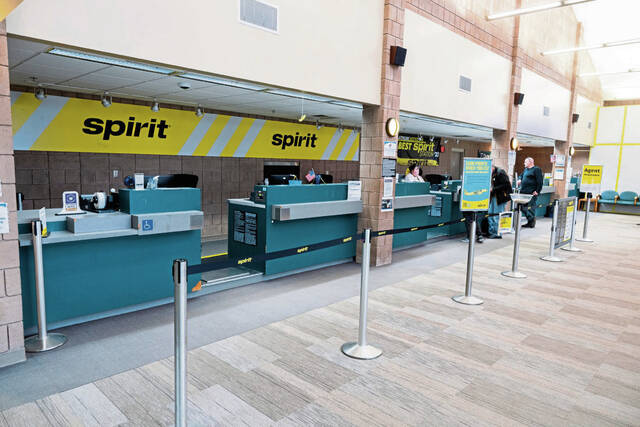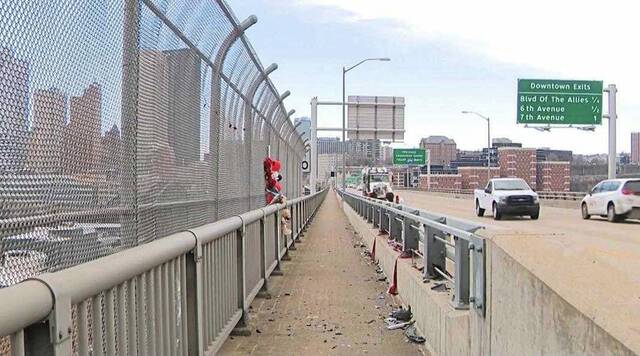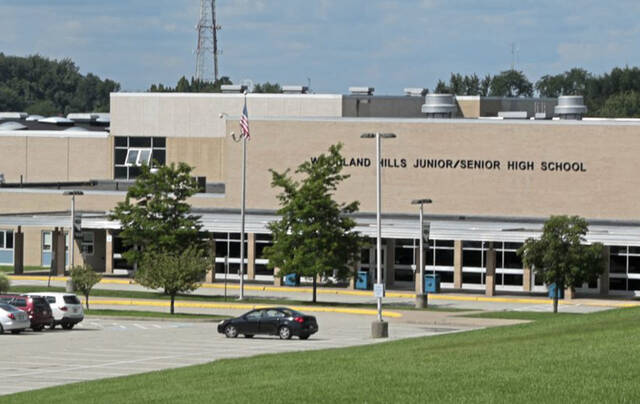The for-profit company behind the planned $740 million Esplanade development on Pittsburgh’s North Shore is asking the city, Allegheny County and Pittsburgh Public Schools for a long-term massive tax break.
Canonsburg-based Piatt Companies is requesting a deal that would take nearly $54 million in property tax revenue and plow it back into the ambitious development, which has captured the public’s imagination with its plans for a signature Ferris wheel nearly 200 feet tall.
The Urban Redevelopment Authority board voted unanimously Thursday to support the tax break. Pittsburgh, Allegheny County and Pittsburgh Public Schools will each need to approve the agreement for it to go forward.
The authority’s vote was a first step in a longer process that will include public input and votes from all three taxing entities.
75/25 split
Piatt’s move comes at a time when the city and county are struggling financially as federal covid-19 relief money is drying up, revenues are declining and inflation is hindering how far money can stretch.
The development — which this week received Planning Commission approval for its master plan — aims to revitalize a 15-acre brownfield site along the Ohio River in Pittsburgh’s Chateau neighborhood into an entertainment destination that promises to create jobs and give the city a big economic boost.
Tom Link, chief development officer for the city’s Urban Redevelopment Authority, said the parcels involved currently pay around $83,642 in property taxes each year.
A portion of the site has been under the authority’s ownership — and therefore off the tax rolls — since 2003.
Piatt wants the parcels to become part of a Transit Revitalization Investment District, which would last for 40 years.
Once the Esplanade development is fully completed in six to 10 years, it will likely generate about $8 million in tax revenue each year, Link said.
If the three taxing bodies agree to the proposed break, they’ll allow 75% of that extra cash to go back to the development — rather than their own coffers. While the district will last for 40 years, individual parcels at the site are eligible for only a 20-year tax break.
That money, which would otherwise be paid in taxes, could instead be used to offset costs of on-site projects like public infrastructure, a public parking garage, riverbank restoration or affordable housing.
A portion of the money also may support off-site projects that benefit the neighboring communities, like improvements to public spaces and roadways or the creation of additional affordable housing.
Support from Lavelle
R. Daniel Lavelle, who serves on the authority’s board and is City Council president, said the estimated $8 million in annual taxes that will eventually go to the city, county and school district will be a big help in balancing their books.
But he also supported the tax break for Piatt.
Benefits like affordable housing and improved connections with the Manchester and Chateau neighborhoods, he said, may not be feasible without such a deal.
LaShawn Burton-Faulk, who heads the Manchester Citizens Corporation and chairs the city’s Planning Commission, voiced support for the development and the tax deal it’s seeking.
“The TRID for Manchester, I think, is a very powerful tool,” she said, highlighting the importance of responsible development in a predominantly minority neighborhood and where many would like to see more investments and economic opportunities.
Link estimated the development will generate about $1.5 billion in economic output once completed. The project is expected to create about 9,000 construction jobs and 4,000 permanent positions.
Plans include public restrooms, retail, restaurants, a grocery store, park space, a marina, a winter garden, incubator spaces for local entrepreneurs, entertainment spaces, areas for pop-up events, offices and parking for cars and bikes. The Ferris wheel would sit alongside a 126-unit condo complex, a 13-story hotel and a nearly 200-foot-tall apartment tower.
The developer has promised to designate 20% of housing built on-site as affordable for low-income residents.
Lucas Piatt, the development company’s CEO, said it will be a “huge, impactful project” that will benefit the surrounding communities and the city as a whole.
“When we first conceived of Esplanade in 2016, we wanted to think big,” Piatt said. “We wanted to think unique. We wanted to showcase a world-class development that the region would talk about.”
Clarification: An earlier version of this story omitted details about the duration of the tax benefit.








